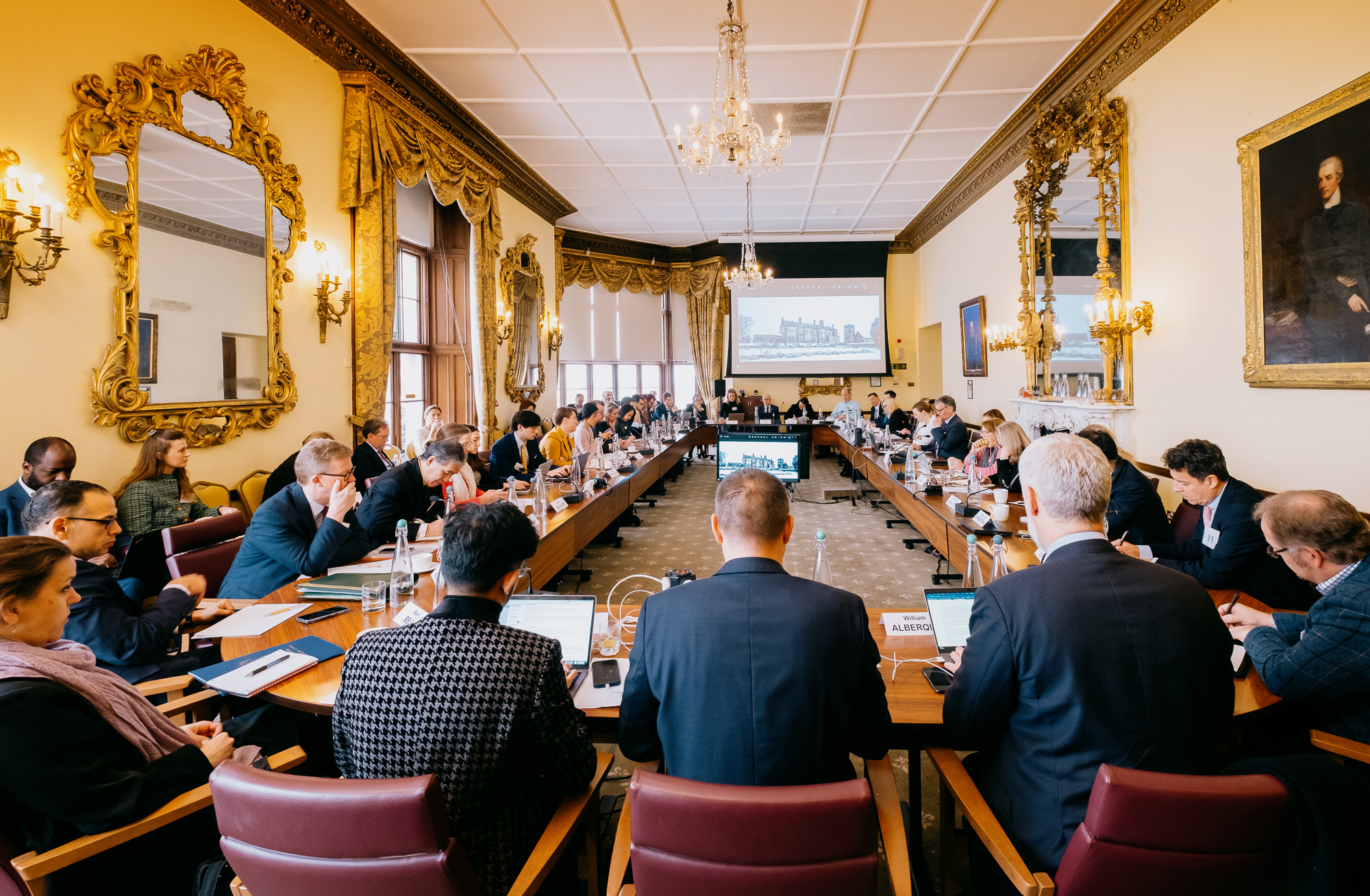- There is growing dissatisfaction amongst NNWS on NWS’ progress towards disarmament. This dissatisfaction resulted in the negotiation and entry into force of the Treaty on the Prohibition of Nuclear Weapons (TPNW) in 202, which calls for a legally binding framework to prohibit States Parties from possessing or developing nuclear weapons. States Parties to the TPNW argue that the Treaty is an instrument to support the NPT and is meant to be complimentary and compatible with the current regime. The TPNW recognises the NPT as the cornerstone of non-proliferation and was negotiated not to undermine the NPT, but to address NNWS concerns over the pace of progress towards disarmament. In addition to the TPNW, there are other forward-looking initiatives for disarmament such as a UK-led and Norwegian-led initiatives on transparency and irreversibility.
- The ongoing war in Ukraine and related threats of nuclear use, however, may complicate the public case for nuclear disarmament. At Wilton Park, critics of the TPNW accused the treaty of being detached from reality given the current security environment, arguing that the treaty fails to differentiate between responsible and irresponsible nuclear powers, and questioning whether nuclear disarmament could ever be permanent. Some participants asserted that arguments for nuclear deterrence will become more compelling, especially if Russia successfully deters further Western involvement and emerges victorious in Ukraine. On the other hand, proponents of the TPNW noted that the war in Ukraine and Russian nuclear threats have also prompted broader conversations on the humanitarian consequences of nuclear weapons use. This discourse transcends divergences of views over deterrence versus disarmament to address the implications of the threat or actual use of nuclear weapons by a NWS against a NNWS. Advocates of the TPNW further contend that there are not inherent incompatibilities between the NPT and the TPNW and reject assertions that TPNW lays at the heart of polarisation in the NPT.
- A normative approach to disarmament may offer an alternative to the humanitarian approach embodied in the TPNW. Advocates for a normative approach pointed out that, rhetorically, normative approaches are already embedded in the NPT. They also argued that while the TPNW has received many ratifications, the treaty will soon run out of states willing to ratify. One participant discussed efforts to reframe disarmament discourse through a framework that places each state’s responsibilities regarding nuclear weapons at the center of the conversation. Advocates for a normative approach to disarmament generally faced similar lines of criticism to TPNW proponents.
- Participants engaged in contentious debates regarding the current and future role of civil society in disarmament work. Some participants raised questions and concerns about the critical responses of NGOs, such as ICAN, to RevCon’s inability to achieve a consensus final document. In response, other participants argued the TPNW—which is a treaty negotiated and signed by states—is distinct from the NGOs that support it, and that criticism of ICAN should be directed to ICAN rather than representatives of the TPNW. Going forward, it could be useful to differentiate between civil society organisations that champion a cause and the states who negotiate a treaty.
- Moving forward, the review process will likely be characterised in part by growing tensions between those States Parties concerns about the degraded security environment and those frustrated about the lack of progress towards disarmament. If NWS and their allies disregard disarmament commitments to address the deteriorating security environment, polarisation within the Review Cycle is likely to worsen as disarmament advocates grow tired of the failure to make progress. It is therefore crucial that NWS make efforts to assure NNWS of their commitment to disarmament, even as disarmament itself appears as an increasingly distant goal. One suggestion for a sign of good faith would be for some (or all) NWS to observe the TPNW’s next meeting of state parties.
